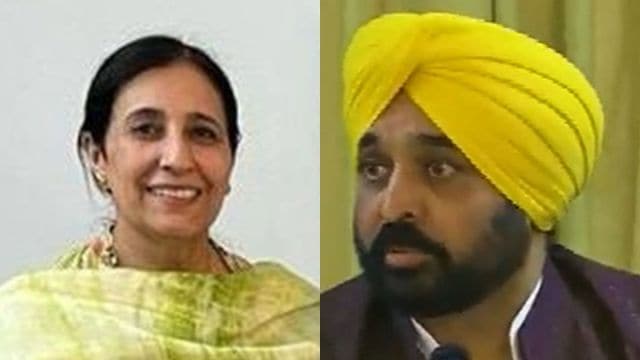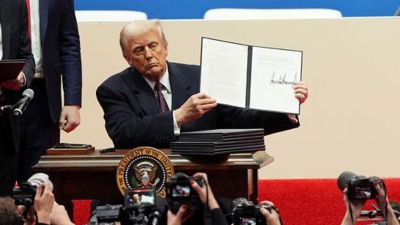It’s an IAS officer versus the CM in Punjab: find out why
Parampal Kaur, the daughter-in-law of former minister and Shiromani Akali Dal (SAD) leader Sikandar Singh Maluka, submitted her resignation on April 3.
 Punjab CM Bhagwant Mann said that the government is investigating the reasons behind Parampal Kaur Sidhu's resignation. (File)
Punjab CM Bhagwant Mann said that the government is investigating the reasons behind Parampal Kaur Sidhu's resignation. (File)Punjab-cadre IAS officer Parampal Kaur, who joined the Bharatiya Janata Party (BJP) on Thursday, is in the thick of a controversy with Chief Minister Bhagwant Mann saying that her resignation had not been accepted, while Kaur claims it had been acknowledged by the Centre. The Indian Express elucidates the controversy.
What is the issue?
Parampal Kaur, the daughter-in-law of former minister and Shiromani Akali Dal (SAD) leader Sikandar Singh Maluka, submitted her resignation on April 3. Serving as the Managing Director of the Punjab State Industrial Development Corporation (PSIDC), she forwarded a request for voluntary retirement to Chief Secretary Anurag Verma, citing personal and domestic reasons for her inability to continue in service. Under rule 16(2) of the AIS (Death-cum-Retirement benefits) Rules, 1958, she expressed her desire for immediate voluntary retirement from the Indian Administrative Service (IAS) and requested a waiver of the customary three-month notice period.The Chief Secretary forwarded the file to the Chief Minister, who withheld approval. However, prior to the CM’s decision, Kaur joined the BJP and announced to the media that her resignation had been accepted by the Centre.
What did the CM say?
He said that the government is investigating the reasons behind Parampal Kaur Sidhu’s resignation. If her motives for resigning are found to be improper, appropriate action will be taken against her, though he did not specify the nature of the action. The CM took to X shortly after her BJP affiliation, affirming, “The Punjab government has not accepted Parampal Kaur ji’s resignation as an IAS officer. Biba ji was in haste to become an IAS officer, but there is a procedure to resign. It’s essential to understand that, or else the lifelong earnings could be jeopardized.” He criticised the expedited manner in which Kaur was appointed as an officer based on political recommendations, citing her father-in-law’s influence. He emphasized that the acceptance of resignations follows specific protocols, regardless of the circumstances.
What do the rules say?
According to the rules, an IAS officer is required to submit his/her resignation to the Chief Secretary. The Department of Personnel and Training (DOPT) at the Centre is the competent authority for accepting the resignation of an IAS officer. The state cadre must adhere to regulations before approving the resignation. A No Dues Certificate must be provided by the department, and the officer’s vigilance status must be communicated to the Centre. Subsequently, the state cadre must forward the resignation to the competent authority, i.e., the Centre. Before forwarding the resignation, it is essential to ensure that there are no outstanding issues against the officer. The competent authority will only consider the resignation tendered by the member of service after obtaining the recommendation of the concerned cadre.
What is being said about the acceptance of her resignation by the Centre?
Questions are being raised regarding how the Centre accepted her resignation when she had applied for Voluntary Retirement Scheme (VRS) under section 16-2, requested a 3-month waiver, and did not submit any resignation application to the state. “Does this mean she sent her resignation directly to the Centre, bypassing her state cadre? Under section 16 (2), the state government is the competent authority to grant or deny benefits. The file is still with the CM and is yet to be approved. So how did the Centre decide on her resignation? Guidelines for processing resignations clearly state that the Centre can only accept the resignation after obtaining a recommendation from the concerned cadre. In this case, no recommendation has been made,” said a government official.
What will happen now?
With the CM indicating that the government would investigate whether the reasons for her resignation cited in her application were correct, there is uncertainty. According to her application, she cited “personal and domestic reasons,” but now it’s become clear that she had “political reasons.” If the state takes a stance, it could escalate confrontation between the Centre and the state.







